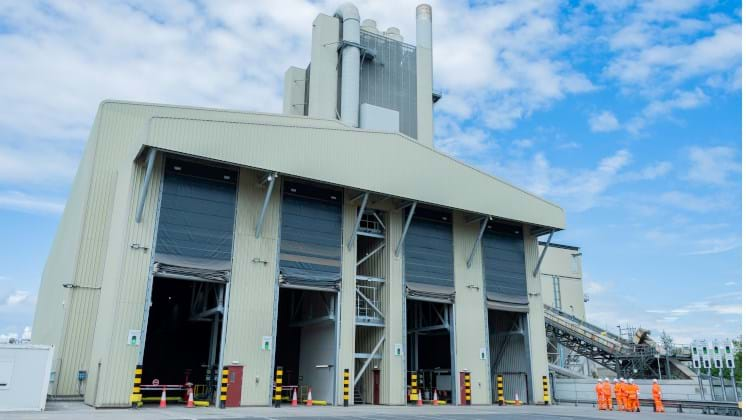Cemex opens new non-fossil fuelled facility in UK

CEMEX has officially opened its new Climafuel facility at its Rugby, UK cement plant. The plant, which runs on fuel derived from household residual and commercial waste, aims to eventually eliminate the usage of coal and gas by operating 100% on alternative fuels.
Cement, the key ingredient in concrete, accounts for around 8% of global anthropogenic CO2 emissions, a figure that could rise considering that global cement production is set to increase to more than 5bn t/y over the next 30 years.
The release of carbon during cement production is difficult to prevent, as 40% of the weight of limestone – cement’s key ingredient – is CO2. But by using an alternative means to power cement plants instead of fossil fuels, emissions could be reduced.
One such fuel is Climafuel. Derived from household residual and commercial waste that would otherwise go to landfill, Climafuel is processed using Mechanical Biological Treatment (MBT) to produce a clean, non-hazardous product.
The product replaces 20–60% of the fossil fuels used to heat the cement kilns, which not only reduces the reliance on fossil fuel use but also reduces waste going to landfill.
Sergio Menéndez, President of Cemex Europe, Middle East, Africa & Asia said the investment “is a significant milestone in the company's ambitions to decarbonise. With the completion of this considerable development, we have set new records in alternative fuel substitution, the highest of any of our plants and eventually expect to phase out completely the usage 2 of fossil fuels at the plant.”
The firm expects to achieve 70% alternative fuel substitution in the region this year, as it pushes to achieve its target of a 55% reduction of CO2 by 2030.
The news follows further developments by Cemex, which recently committed to the West Midlands Net Zero Business Pledge, a local initiative that strives to make the region a net zero carbon economy by 2041.
Nathaniel Weaver, Project Officer from Sustainability West Midlands, said: “We are very pleased to see a business of Cemex’s calibre signing up to the pledge. We all have a role to play to ensure the national target of net zero greenhouse gas emissions by 2050 is met, and all businesses in the West Midlands should be evaluating their operations now to see how it can be made more sustainable.”
Recent Editions
Catch up on the latest news, views and jobs from The Chemical Engineer. Below are the four latest issues. View a wider selection of the archive from within the Magazine section of this site.




